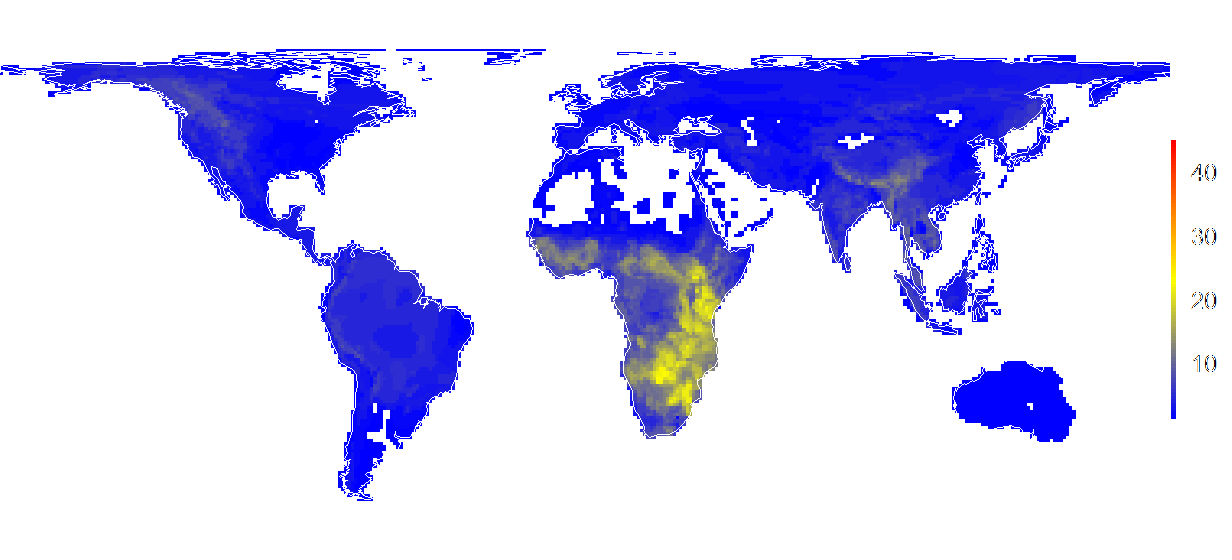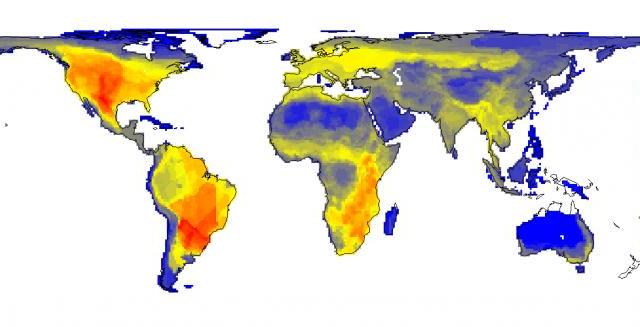There aren’t many large mammals around anymore in, most of the world. That’s mostly because one mammal species — Homo sapiens — has taken a heavy toll on its competition. Now, a team of researchers demonstrates what would have happened to the world’s megafauna if humans had never existed.
Today, sub-Saharan Africa is one of the last places in the world with many large mammal species. “It’s one of the only places where human activities have not yet wiped out most of the large animals,” said ecologist Soren Faurby in a statement. But even there, many species are endangered and their ranges have been severely limited by human activity.
Elsewhere in the world, most large mammal species have been eradicated, or nearly so. North America’s bison are a recent example. And in many places, the surviving large mammal species, like Europe’s brown bears, have been driven into mountainous areas, where there are fewer people. The image above shows the diversity of mammal species in a world without humans; the image below shows how much we’ve reduced that diversity.

It’s a pretty bleak picture. But if humans had never existed, large mammals would still rule nearly every continent on Earth, according to Faurby and his colleagues. The team calculated the likely habitat ranges of large mammal species like bears, elephants, elk, moose, rhinoceros, tigers, wolves, and others in a world without people. To do this, they calculated what each species’ habitat would look like if humans had never built a farm or a city, altered Earth’s climate, or otherwise meddled in Earth’s ecosystems.
In this hypothetical world without humans, parts of North America and South America — both of which are poor in big mammals here in the real world — would be home to more species than sub-Saharan Africa. In Europe, rhinoceroses and elephants would roam alongside Eurasian elk and bears. Faurby and his team published their results in the journal Diversity and Distributions.
The same researchers had previously pinned the mass extinction of megafauna after the last Ice Age squarely on human expansion, so the difference between today’s world and a world without humans might not be much of a surprise. But Faury and his colleagues say that their findings could provide useful insight to conservation efforts.
[ScienceDaily, Diversity and Distributions]
Images: Soren Faurby
